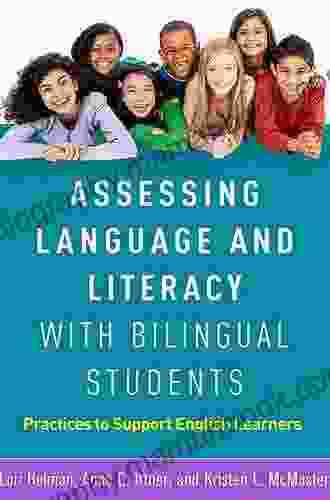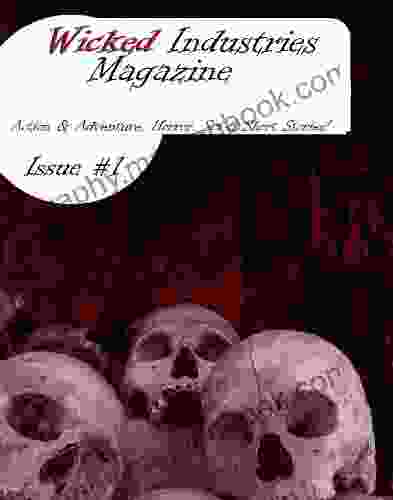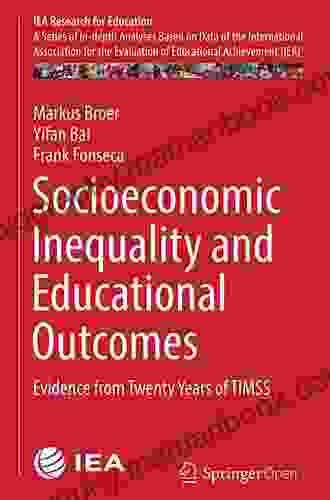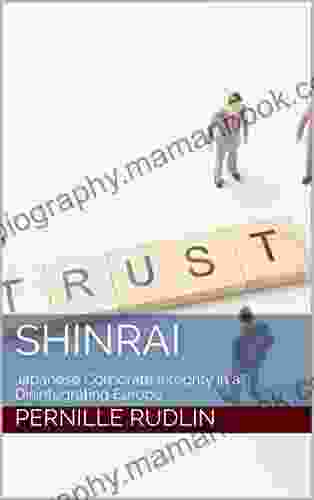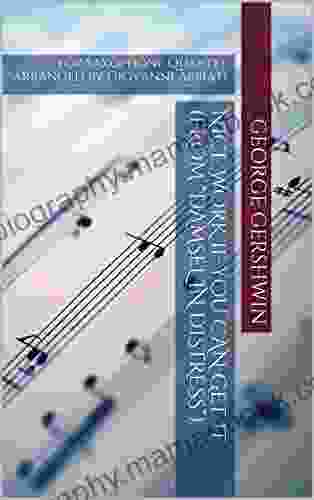Assessing Language and Literacy with Bilingual Students

Assessing language and literacy skills in bilingual students is essential for providing effective instruction and support. However, it can be a complex task, as there are a number of factors to consider, such as the student's proficiency in both languages, the type of assessment being used, and the cultural and linguistic background of the student.
This article will provide an overview of the different types of assessments that can be used to assess language and literacy skills in bilingual students, as well as some tips for conducting assessments in a fair and equitable manner.
4.7 out of 5
| Language | : | English |
| File size | : | 6582 KB |
| Text-to-Speech | : | Enabled |
| Screen Reader | : | Supported |
| Enhanced typesetting | : | Enabled |
| Word Wise | : | Enabled |
| Print length | : | 230 pages |
Types of Assessments
There are a variety of different types of assessments that can be used to assess language and literacy skills in bilingual students. These assessments can be divided into two broad categories: formal and informal assessments.
- Formal assessments are standardized tests that are designed to measure a student's proficiency in a particular language or skill. These assessments are typically administered by a qualified professional, such as a teacher or speech-language pathologist.
- Informal assessments are less structured than formal assessments and can be conducted by any individual who is familiar with the student's language and literacy skills. These assessments can be used to gather information about a student's progress over time or to identify areas where the student needs additional support.
The type of assessment that is used will depend on the specific purpose of the assessment. For example, a formal assessment may be used to make placement decisions or to track a student's progress over time. An informal assessment may be used to diagnose a language or literacy problem or to provide feedback to the student and their parents.
Considerations for Assessing Bilingual Students
When assessing language and literacy skills in bilingual students, there are a number of factors to consider, including:
- The student's proficiency in both languages. It is important to assess a student's proficiency in both of their languages in order to get a complete picture of their language and literacy skills.
- The type of assessment being used. Some assessments are more appropriate for assessing certain types of language and literacy skills than others.
- The cultural and linguistic background of the student. It is important to be aware of the cultural and linguistic background of the student when assessing their language and literacy skills.
By considering these factors, you can ensure that the assessment is fair and equitable and that the results are accurate and meaningful.
Tips for Conducting Assessments in a Fair and Equitable Manner
Here are some tips for conducting assessments in a fair and equitable manner:
- Use a variety of assessment tools. No single assessment tool can provide a complete picture of a student's language and literacy skills. By using a variety of assessment tools, you can get a more comprehensive view of the student's strengths and weaknesses.
- Be aware of the student's cultural and linguistic background. When assessing a bilingual student, it is important to be aware of their cultural and linguistic background. This will help you to understand the student's language and literacy development and to interpret the assessment results accurately.
- Provide clear and concise instructions. Before administering an assessment, it is important to provide the student with clear and concise instructions. This will help to ensure that the student understands the task and is able to complete it successfully.
- Allow students to use their native language. In some cases, it may be appropriate to allow bilingual students to use their native language during the assessment. This can help to reduce anxiety and to ensure that the student is able to demonstrate their full potential.
- Be patient and supportive. Assessing bilingual students can be a challenging task. It is important to be patient and supportive throughout the process. This will help to create a positive learning environment and to encourage the student to do their best.
By following these tips, you can ensure that language and literacy assessments are fair and equitable for all bilingual students.
Assessing language and literacy skills in bilingual students is an essential part of providing effective instruction and support. By using a variety of assessment tools and being aware of the student's cultural and linguistic background, you can ensure that the assessment is fair and equitable and that the results are accurate and meaningful.
By working together with bilingual students and their families, we can help to ensure that all students have the opportunity to succeed in school and in life.
4.7 out of 5
| Language | : | English |
| File size | : | 6582 KB |
| Text-to-Speech | : | Enabled |
| Screen Reader | : | Supported |
| Enhanced typesetting | : | Enabled |
| Word Wise | : | Enabled |
| Print length | : | 230 pages |
Do you want to contribute by writing guest posts on this blog?
Please contact us and send us a resume of previous articles that you have written.
 Top Book
Top Book Novel
Novel Fiction
Fiction Nonfiction
Nonfiction Literature
Literature Paperback
Paperback Hardcover
Hardcover E-book
E-book Audiobook
Audiobook Bestseller
Bestseller Classic
Classic Mystery
Mystery Thriller
Thriller Romance
Romance Fantasy
Fantasy Science Fiction
Science Fiction Biography
Biography Memoir
Memoir Autobiography
Autobiography Poetry
Poetry Drama
Drama Historical Fiction
Historical Fiction Self-help
Self-help Young Adult
Young Adult Childrens Books
Childrens Books Graphic Novel
Graphic Novel Anthology
Anthology Series
Series Encyclopedia
Encyclopedia Reference
Reference Guidebook
Guidebook Textbook
Textbook Workbook
Workbook Journal
Journal Diary
Diary Manuscript
Manuscript Folio
Folio Pulp Fiction
Pulp Fiction Short Stories
Short Stories Fairy Tales
Fairy Tales Fables
Fables Mythology
Mythology Philosophy
Philosophy Religion
Religion Spirituality
Spirituality Essays
Essays Critique
Critique Commentary
Commentary Glossary
Glossary Bibliography
Bibliography Index
Index Table of Contents
Table of Contents Preface
Preface Introduction
Introduction Foreword
Foreword Afterword
Afterword Appendices
Appendices Annotations
Annotations Footnotes
Footnotes Epilogue
Epilogue Prologue
Prologue Ralph Waldo Emerson
Ralph Waldo Emerson G L Peebles
G L Peebles Percival Constantine
Percival Constantine Dennis Allums
Dennis Allums Kitty Mcintosh
Kitty Mcintosh Mark Myers
Mark Myers Orlando Ricardo Menes
Orlando Ricardo Menes Jen Brister
Jen Brister John W Creswell
John W Creswell Diana Abu Jaber
Diana Abu Jaber Sydney Arrison
Sydney Arrison Chris Whitaker
Chris Whitaker Angela Carr
Angela Carr Kathy Hearn
Kathy Hearn Justin Yifu Lin
Justin Yifu Lin John V Maclean
John V Maclean Kim Michele Richardson
Kim Michele Richardson Jean Michel Glachant
Jean Michel Glachant Carol Pratt Bradley
Carol Pratt Bradley Andy Vickler
Andy Vickler
Light bulbAdvertise smarter! Our strategic ad space ensures maximum exposure. Reserve your spot today!
 Corey HayesFollow ·9.5k
Corey HayesFollow ·9.5k Bryson HayesFollow ·4.6k
Bryson HayesFollow ·4.6k Steven HayesFollow ·4k
Steven HayesFollow ·4k Andrew BellFollow ·14.4k
Andrew BellFollow ·14.4k Timothy WardFollow ·10.5k
Timothy WardFollow ·10.5k Leslie CarterFollow ·16.1k
Leslie CarterFollow ·16.1k Caleb CarterFollow ·6.4k
Caleb CarterFollow ·6.4k Eliot FosterFollow ·11.2k
Eliot FosterFollow ·11.2k

 Barry Bryant
Barry BryantKnitting Pattern Kp190 Baby Sleeping Bags Sizes 3mths...
This easy-to-follow...

 Rudyard Kipling
Rudyard KiplingFolk Music Arrangements of Bartók: A Musical Tapestry of...
Béla Bartók, the renowned...
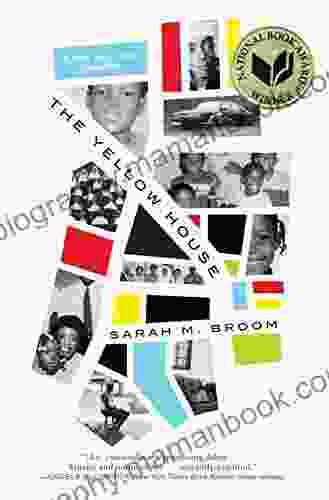
 Garrett Bell
Garrett BellThe Yellow House Memoir: A Literary Masterpiece that...
A Journey of Resilience,...

 George Martin
George MartinAssassin Witch Dark Faerie: The Bonegates
In the shadowy...
4.7 out of 5
| Language | : | English |
| File size | : | 6582 KB |
| Text-to-Speech | : | Enabled |
| Screen Reader | : | Supported |
| Enhanced typesetting | : | Enabled |
| Word Wise | : | Enabled |
| Print length | : | 230 pages |


